Parwal ki sabzi recipe - a dry vegetable dish made with pointed gourds. Very healthy and homey dish that can be made on everyday basis.
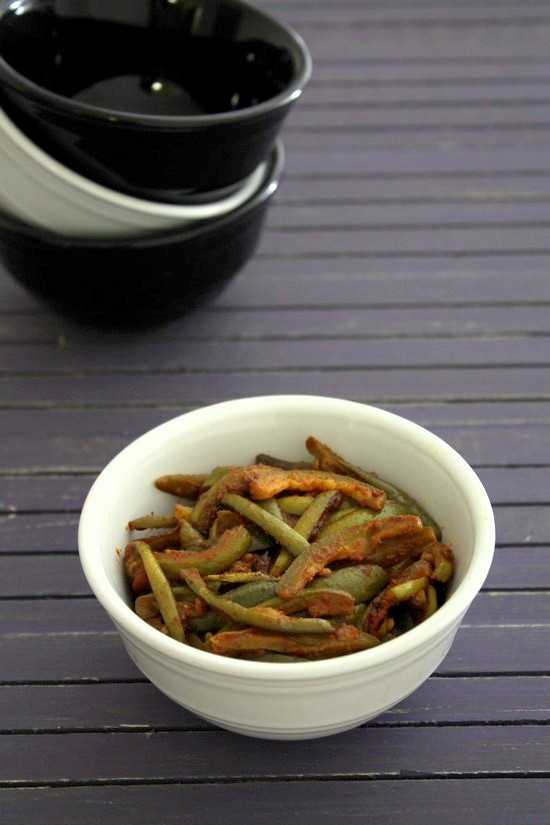
When you buy the parval, make sure that you select the young one. young pointed gourd’s skin should be bright green in color and inside is whitish in color. And the seeds are very small and so tender. these tender seeds makes the sabzi more flavorful and delicious.
The mature and ripe ones have hard seeds in it, if you got any by chance. You must remove and discard those seeds, Those seeds are so hard and inedible. The ripe ones are yellowish in color from inside.
Any kind of sookhi sabzi is always welcomed in my home. I make different varieties of sabzi almost every single day for our lunch or dinner. This kind of vegetables goes well with roti or phulka. And these combination is very healthy and nutritious.
This parval ki sabzi is very regular at my mom’s place. And I am following her footsteps, I do make this very often. The good thing is that picky eater hubby also likes it.
Sometimes I add a small potato to this. As potato is very versatile vegetable, that can be paired with any other vegetable. But most of the time I make without potatoes.
Check out other healthy sabzi recipes
Green peas sabzi // Lauki tamatar sabzi // Tindora sabzi // Bhindi bhaji // Karela sabzi
Step By Step Photo Instructions:
1) Rinse the parwal well.
2) Remove the both pointed ends (head and tail part), discard them. Now cut into half vertically. Then slice them. If you find any hard seeds then remove it. If the seeds are easily cut by knife means those are tender. keep those seeds, they will make the sabzi more flavorful.
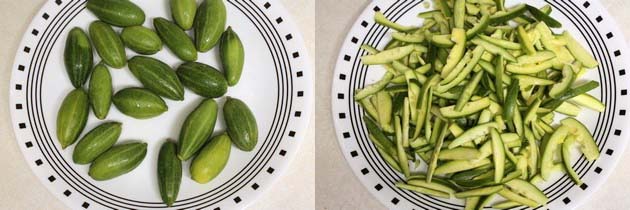
3) Heat the oil in a pan on medium heat. Once hot add cumin seeds. Let them sizzle a bit.
4) Then add turmeric powder and hing.
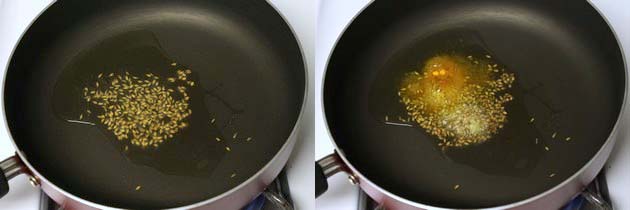
5) Immediately add sliced parwal.
6) Mix well.
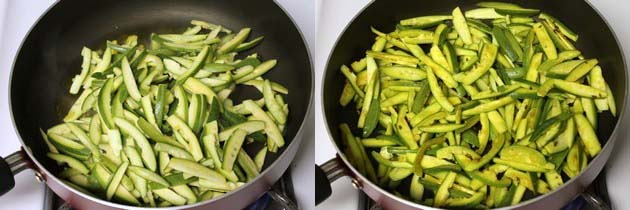
7) Add red chili powder, coriander powder and salt.
8) Mix well, so all the masala and oil is coated.
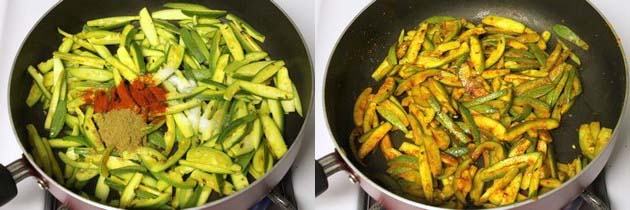
9) Cover it with the lid. Lid should have slight rim around the edges. pour a glassful of water and let it cook.
10) Cook till parwal is soft and tender. Do stir once or twice in between and make sure that it is not sticking to the bottom of the pan.
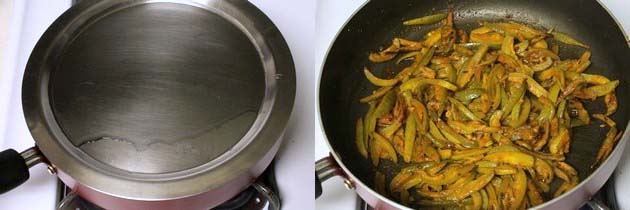
11) Lastly add garam masala, amchur powder and anardana powder.
12) Mix well and turn off the stove.
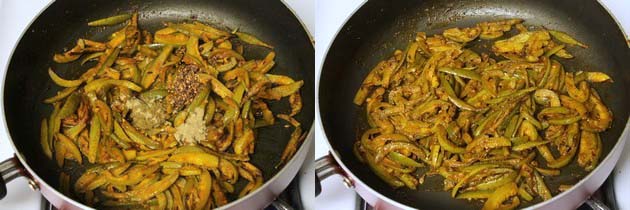
Parwal ki sabzi is ready to serve. If not serving it right away then keep it covered, so it stays warm till the time of serving.
Serving suggestion: Serve with phulka or paratha. It can served as a side dish with dal-rice.
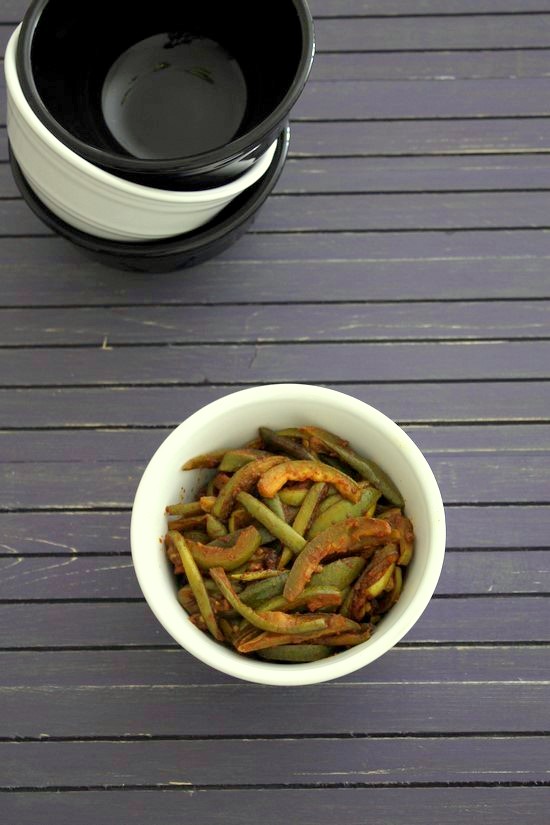
Did you try this parwal ki sabzi recipe? I’d love to hear about it! Leave a review in the comment section below.
Recipe Card
Parwal Ki Sabzi Recipe
Ingredients
- 2 tablespoons Oil
- ½ teaspoon Cumin seeds
- ¼ teaspoon Turmeric powder
- a pinch Hing (Asafoetida)
- 350 grams or 1 ½ cups Parwal (Pointed gourd) sliced
- Salt - to taste
- 1 ½ teaspoons Red chili powder
- 1 teaspoon Coriander powder
- ½ teaspoon Garam masala
- ½ teaspoon Amchur powder (Dried mango powder)
- 1 teaspoon Anardana powder (Dried pomegranate seeds powder)
Instructions
- Rinse the parwal well.
- Remove the both pointed ends (head and tail part), discard them.
- Now cut into half vertically. Then slice them. If you find any hard seeds then remove it. If the seeds are easily cut by knife means those are tender. keep those seeds, they will make the sabzi more flavorful.
- Heat the oil in a pan on medium heat. Once hot add cumin seeds. Let them sizzle a bit.
- Then add turmeric powder and hing.
- Immediately add sliced parwal and mix well.
- Add red chili powder, coriander powder and salt. Mix well, so all the masala and oil is coated.
- Cover it with the lid. Lid should have slight rim around the edges. pour a glassful of water and let it cook.
- Cook till parwal is soft and tender. Do stir once or twice in between
- Lastly add garam masala, amchur powder and anardana powder. Mix well
- turn off the stove.

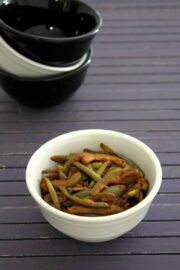
Richa
Thanks a lot 🙂
Kanan
you're welcome
Neelam
Y do we put water on the lid
Kanan
Whenever we make dry sabzi, water is added in the lid.
As water heats up, it evaporates and steam will create in the pan which help to cook the veggies.
This steam will keep the sabzi moist and also prevents the sabzi sticking to the bottom of the pan.